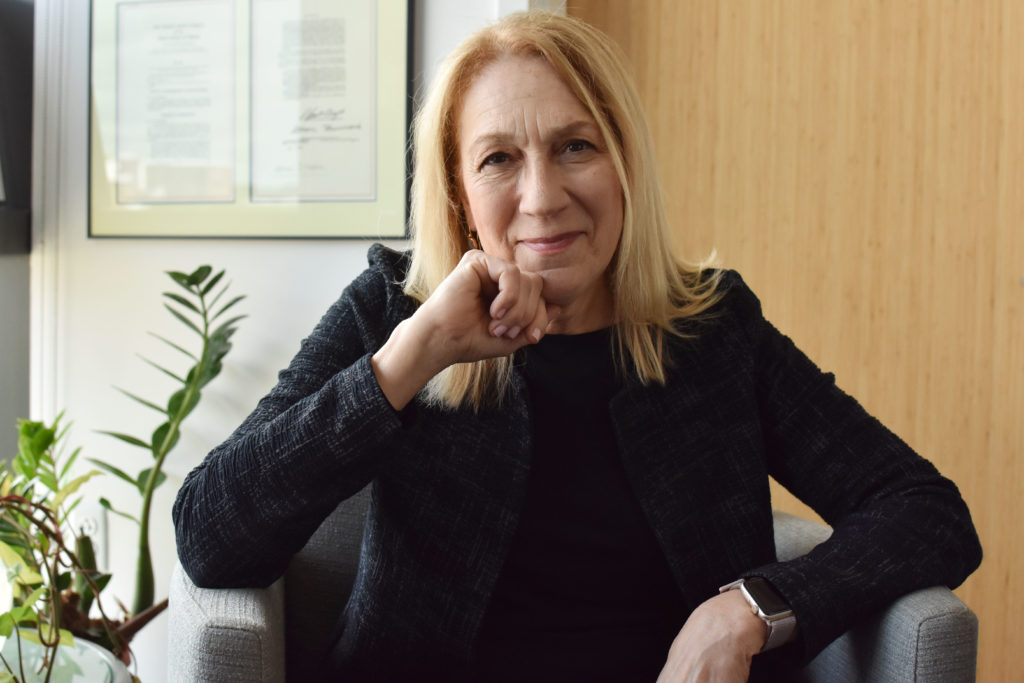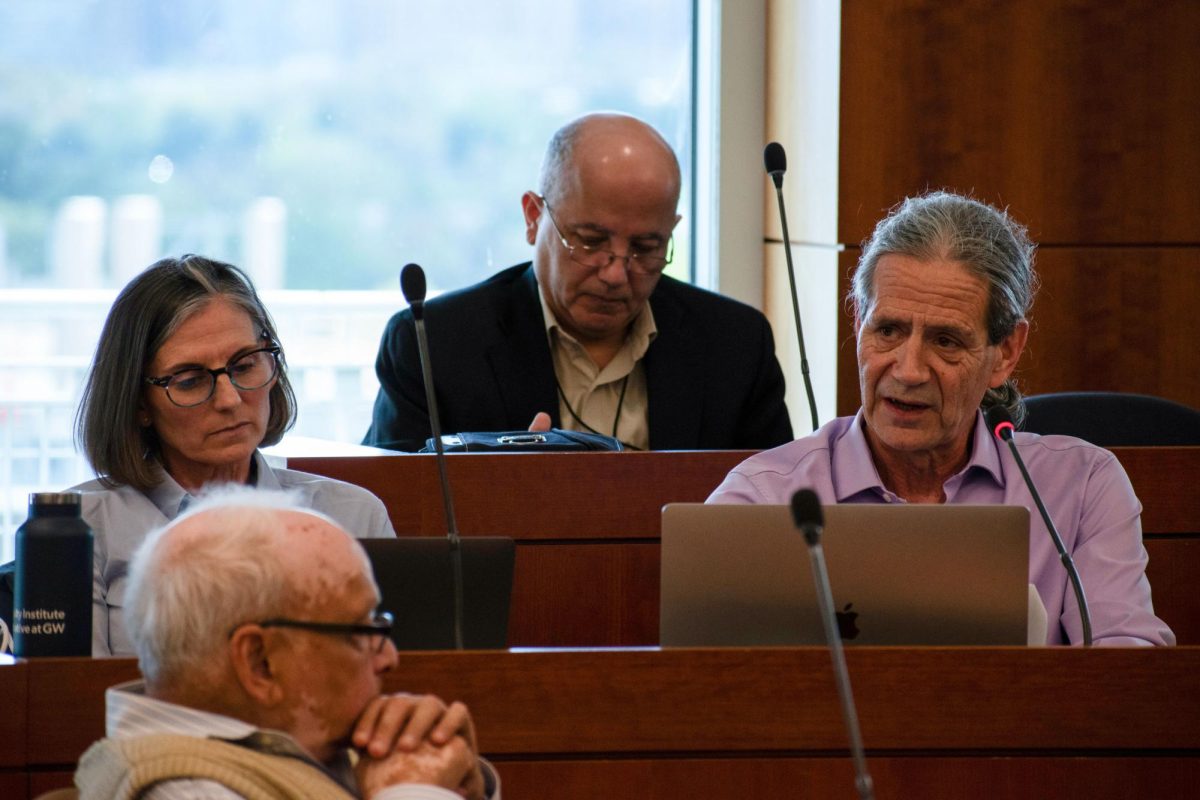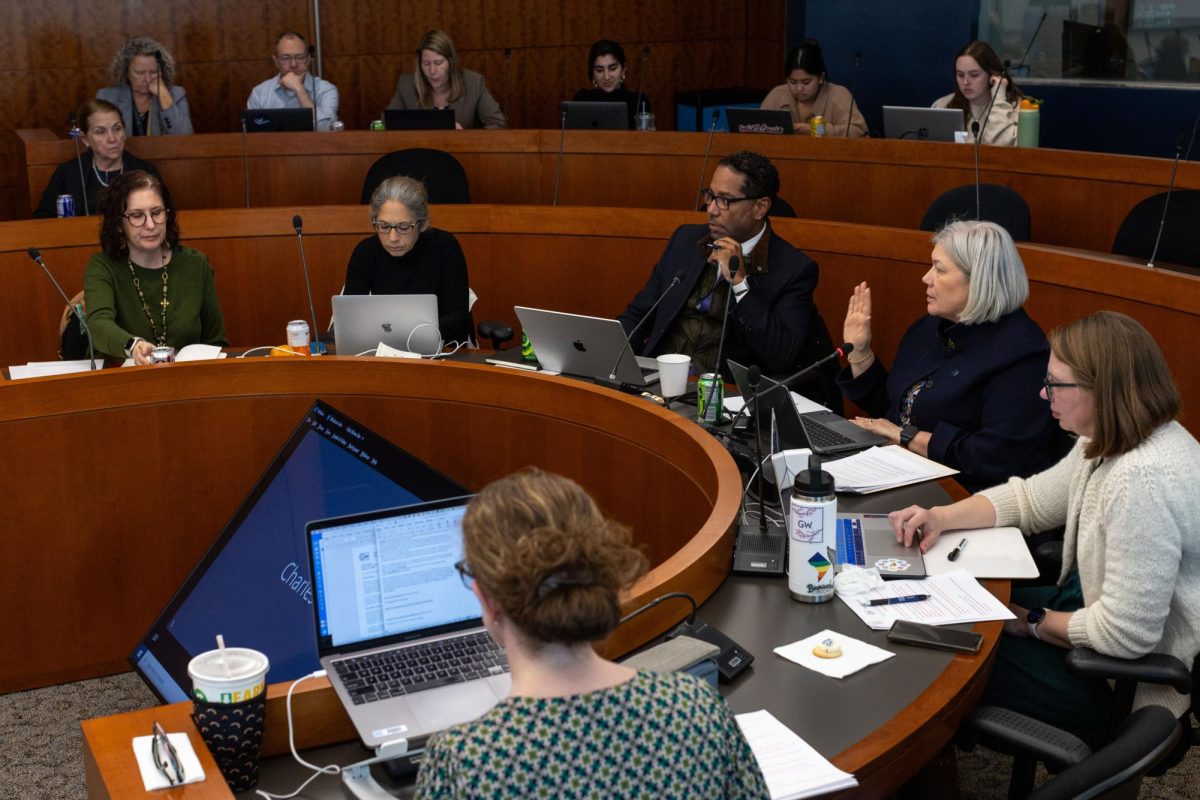Eleven months after its last leader’s departure – and amid a sharp drop in the number of projects it has sponsored – the GW Food Policy Institute will receive a new leader next academic year, officials said.
Milken Institute School of Public Health leaders said they will launch a search this fall for a new director of the Food Policy Institute, which facilitates research between staff, faculty and students on food-related issues. After Milken officials hire a director and increase funding, the institute’s staff can ramp up the number of research projects, Lynn Goldman, the public health school dean, said.
“Recruiting somebody that matches our needs as much as possible will fit in well here,” Goldman said. “I hope to find somebody with rock star potential.”
William Dietz, the co-director of the Food Policy Institute, said in an email last month that the institute has been in a “holding pattern” and has had no recent projects since Kathleen Merrigan, the institute’s former director, left last June. Dietz did not return multiple requests for further comment.
The institute has faced several issues since it moved to the public health school from the Office of Sustainability last summer, including a lack of permanent leadership, reduced funding, an outdated website and confusion among affiliated faculty about the status of the institute’s activities.
Goldman said officials will hire a non-tenure track professor to lead the institute who will likely start in the position next spring. The director will find donors to support the institute’s research and will have the ability to keep the institute’s previous focuses on topics like sustainability and food deserts or add new policy areas to the institute’s scope, she said.
“They will hopefully bring something exciting and new and a little different than what we had before,” Goldman said.
She said many of the institute’s donors were connected with Merrigan personally and left when Merrigan departed from GW. Goldman said the number of projects sponsored by the institute decreased after losing donors, and she has been reaching out to potential donors to discuss providing funds for the institute.
“I have needed to go out and make friends to find people who are supporting it,” Goldman said. “To have an institute or a center, you need to have some support.”
Goldman said the lack of a permanent director may have reduced the institute’s research output, but the institute was able to spend some funds on a few research projects, like a study on the effects of low-calorie sweetened beverages on children and a report about the intersection between climate change, obesity and malnutrition.
Before Merrigan left, the Food Policy Institute worked on research related to food security and sustainability on campus. In February 2018, three student fellows of the institute released a report criticizing the University’s dining plan, saying it was “setting students up to fail.”
In June 2018, researchers conducted a study of the nutritional content of food aid sent to Puerto Rico following Hurricane Maria, revealing that many foods sent contained high quantities of sugar, salt and fat.
In addition to reducing the number of its research projects, the institute operated with an out-of-date website for several months.
The school meal reform section of the website’s “featured research” tab consisted of mock Latin placeholder text, and the most recent articles on the website were published last June. The website also named the 11th Hour Project, the Kellogg Foundation and the Grace Communications Foundation as donors, but Goldman said they no longer provide financial support to the institute.
Following an inquiry from The Hatchet last week, Milken officials updated the website and reduced the number of listed staff and faculty affiliates from 31 to six.
But Kayla Williams, who is listed as the executive coordinator of the now-defunct Sustainability Collaborative, no longer works at GW, according to her LinkedIn page. Robert Orttung, listed on the website as the research director of the Sustainability Collaborative, said he has not been involved with the Food Policy Institute since it moved to the public health school.
Ivy Ken, an associate professor of sociology listed on the institute’s website as the food faculty coordinator, declined to comment, citing a lack of knowledge about the institute. Kim Robien, a co-director of the institute, did not return multiple requests for comment.
Milken officials also added six new articles to the Food Policy Institute website, three from last June and three from this academic year. One of the articles from this year highlights research from Allison Sylvetsky, an assistant professor of exercise and nutrition sciences, which Goldman said was part of the institute’s projects this semester.
But Sylvetsky declined to comment on the institute’s activities, adding that she “was not really involved” with the institute.
Food policy experts said the new director should determine the institute’s main research goals and have a strong background in philanthropy to hit the ground running with fundraising.
Patty Lovera, the assistant director of Food and Water Watch, a nongovernmental organization that advocates for food and water-related issues, said the institute provides a forum for faculty from different academic disciplines to approach food-related issues like food insecurity from different backgrounds.
Lovera added that the institute’s lack of a clear direction is a “missed opportunity” to conduct further research on food-related issues because faculty will not necessarily focus on these topics without the guidance and leadership of the institute.
“When you don’t have somebody whose job it is to drive it all day, every day, things can stall out,” Lovera said.
Rosalie Fanshel, the program manager at the University of California, Berkeley’s Food Institute said any new director that GW’s institute hires must have experience in fundraising skills to allow the institute’s operations to resume immediately after a director is hired.
Fanshel said the new director should incorporate the opinions of staff, faculty and students through town halls about the institute’s focus.
“Your own community knows best what its food institute should be and what it can be and what the potential is,” Fanshel said.











